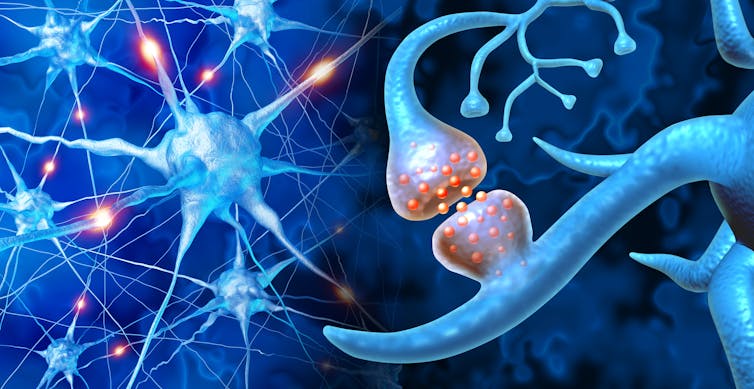How FDA panelists casting doubt on antidepressant use during pregnancy could lead to devastating outcomes for mothers
- Despite FDA panelists casting doubt on the safety of antidepressant medications (SSRIs) during pregnancy, research shows that the risks of untreated depression far outweigh those of SSRIs.
- The benefits of using SSRIs in pregnancy, including improved maternal mental health and reduced risk of suicide, are well-documented and outweigh the potential risks to the fetus.
- Untreated clinical depression in pregnancy poses significant risks to both mother and baby, including preterm birth, low birth weight, and increased risk of behavioral problems and impaired cognition in childhood.
- The FDA’s consideration of adding a black-box warning to SSRIs during pregnancy could lead to decreased prescribing rates, potentially exacerbating the maternal mental health crisis in the US.
- Instead of restricting SSRI use, healthcare providers should promote healthy brain changes through a combination of medications, psychotherapy, and other evidence-based treatments, such as bright light therapy, exercise, and adequate nutrition, to support pregnant women’s mental health and well-being.

At a meeting held by the Food and Drug Administration on July 21, 2025, a panel convened by the agency cast doubt on the safety of antidepressant medications called selective serotonin reuptake inhibitors, or SSRIs, in pregnancy.
Panel members discussed adding a so-called black box warning to the drugs – which the agency uses to indicate severe or life-threatening side effects – about the risk they pose to developing fetuses. Some of the panelists who attended had a history of expressing deep skepticism on antidepressants.
SSRIs include drugs like Prozac and Zoloft and are the most commonly used medicines for treating clinical depression. They are considered the first-line medications for treating depression in pregnancy, with approximately 5% to 6% of North American women taking an SSRI during pregnancy.
We are a psychologist certified in perinatal mental health and a reproductive psychiatrist and neuroscientist who studies female hormones and drug treatments for depression. We are concerned that many claims made at the meeting about the dangers of those drugs contradict decades of research evidence showing that antidepressant use during pregnancy is low risk when compared with the dangers of mental illness.
As clinicians, we have front-row seats to the maternal mental health crisis in the U.S. Mental illness, including suicide and overdose, is the leading cause of maternal deaths. Like all drugs, SSRIs carry both risks and benefits. But research shows that the benefits to pregnant patients outweigh the risks of the SSRIs, as well as the risks of untreated depression.
The panel did not address the safety of SSRIs following delivery, but numerous studies show that taking SSRI antidepressants while breastfeeding is low risk, usually producing low to undetectable drug levels in infants.
The biology of maternal brain health
Pregnancy and the months following childbirth are characterized by so many emotional, psychological and physical changes that the transition to motherhood has a specific name: matrescence. During matrescence, the brain changes rapidly as it prepares to efficiently take care of a baby.
The capacity for change within the brain is known as “plasticity.” Enhanced plasticity during pregnancy and the postpartum period is what allows the maternal brain to become better at attuning to and carrying out the tasks of motherhood. For example, research indicates that during this period, the brain is primed to respond to baby-related stimuli and improve a mother’s ability to regulate her emotions. These brain shifts also act as a mental buffer against aging and stress in the long term.
On the flip side, these rapid brain changes, fueled by hormonal shifts, can make people especially vulnerable to the risk of mental illness during and after pregnancy. For women who have a prior history of depression, the risk is even greater.
Clinical depression interferes with brain plasticity, such that the brain becomes “stuck” in patterns of negative thoughts, emotions and behaviors.
This leads to impairment in brain functions that are essential to motherhood. New mothers with depression have decreased brain activity in regions responsible for motivation, regulation of emotion and problem-solving. They are often withdrawn or overprotective of their infants, and they struggle with the relentless effort needed for tasks that arise with child-rearing like soothing, feeding, stimulating, planning and anticipating the child’s needs.
Research shows that SSRIs work by promoting brain plasticity. This in turn allows individuals to perceive the world more positively, increases the experience of gratification as a mother and facilitates cognitive flexibility for problem-solving.

wildpixel/iStock via Getty Images Plus
Assessing the risks of SSRIs in pregnancy
Prescription drugs like SSRIs are just one aspect of treating pregnant women struggling with mental illness. Evidence-based psychotherapy, such as cognitive behavioral therapy, can also induce adaptive brain changes. But women with severe symptoms often require medication before they can reap the benefits of psychotherapy, and finding properly trained, accessible and affordable psychotherapists can be challenging. So sometimes, SSRIs may be the most appropriate treatment option available.
Multiple studies have examined the effects of SSRIs on the developing fetus. Some data does show a link between these drugs and preterm birth, as well as low birth weight. However, depression during pregnancy is also linked to these effects, making it difficult to disentangle what’s due to the drug and what’s due to the illness.
SSRIs are linked to a condition called neonatal adaption syndrome, in which infants are born jittery, irritable and with abnormal muscle tone. About one-third of infants born to mothers taking SSRIs experience it. However, research shows that it usually resolves within two weeks and does not have long-term health implications.
The FDA-convened panel heavily focused on potential risks of SSRI usage, with several individuals incorrectly asserting that these drugs cause autism in exposed youth, as well as birth defects. At least one panelist discussed clinical depression as a “normal” part of the “emotional” experience during pregnancy and following birth. This perpetuates a long history of of women being dismissed, ignored and not believed in medical care. It also discounts the rigorous assessment and criteria that medical professionals use to diagnose reproductive mental health disorders.
A summary of the pivotal studies on SSRIs in pregnancy by the Massachusetts General Hospital Center for Women’s Health discusses how research has shown SSRIs to not be associated with miscarriage, birth defects or developmental conditions in children, including autism spectrum disorder.

Cappi Thompson/Moment via Getty Images
The risks of untreated mental illness
Untreated clinical depression in pregnancy has several known risks. As noted above, babies born to mothers with clinical depression have a higher risk of preterm birth and low birth weight.
They are also more likely to require neonatal intensive care and are at greater risk of behavioral problems and impaired cognition in childhood.
Women who are clinically depressed have an increased risk of developing preeclampsia – a condition involving high blood pressure that, if not identified and treated quickly, can be fatal to both mother and fetus. Just as concerning is the heightened risk of suicide in depression. Suicide accounts for about 8% of deaths in pregnancy and shortly after birth.
Compared with these very serious risks, the risks of using SSRIs in pregnancy turn out to be minimal. While women used to be encouraged to stop taking SSRIs during pregnancy to avoid some of these risks, this is no longer recommended, as it exposes women to a high chance of depression relapse. The American College of Obstetricians and Gynecologists recommends that all perinatal mental health treatments, including SSRIs, continue to be available.
Many women are already reluctant to take antidepressants during pregnancy, and given the choice, they tend to avoid it. From a psychological standpoint, exposing their fetus to the side effects of antidepressant medications is one of many common reasons for women in the U.S. to feel maternal guilt or shame. However, the available data suggests such guilt is not warranted.
Taken together, the best thing one can do for pregnant women and their babies is not to avoid prescribing these drugs when needed, but to take every measure possible to promote health: optimal prenatal care, and the combination of medications with psychotherapy, as well as other evidence-based treatments such as bright light therapy, exercise and adequate nutrition.
The panel failed to address the latest neuroscience behind depression, how antidepressants work in the brain and the biological rationale for why doctors use them in the first place. Patients deserve education on what’s happening in their brain, and how a drug like an SSRI might work to help.
Depression during pregnancy and in the months following birth is a serious barrier to brain health for mothers. SSRIs are one way of promoting healthy brain changes so that mothers can thrive both short- and long-term.
Should the FDA, as a result of this recent panel, decide to place a black-box warning on antidepressants in pregnancy, researchers like us already know from history what will happen. In 2004, the FDA placed a warning on antidepressants describing potential suicidal ideation and behavior in young people.
In the following years, antidepressant-prescribing decreased, while the consequences of mental illness increased. And it’s easy to imagine a similar pattern in pregnant women.
![]()
I receive royalties for the sales of my book RATTLED, How to Calm New Mom Anxiety with the Power of the Postpartum Brain.
Dr Novick has a career development award from the National Institute of Child Health and Development (K23HD110435) to study the neurobiology of hormonal contraception. This funding was not used to support the preparation or publication of this article. The views expressed here are those of the author and do not represent those of the National Institutes of Health or the University of Colorado School of Medicine.
